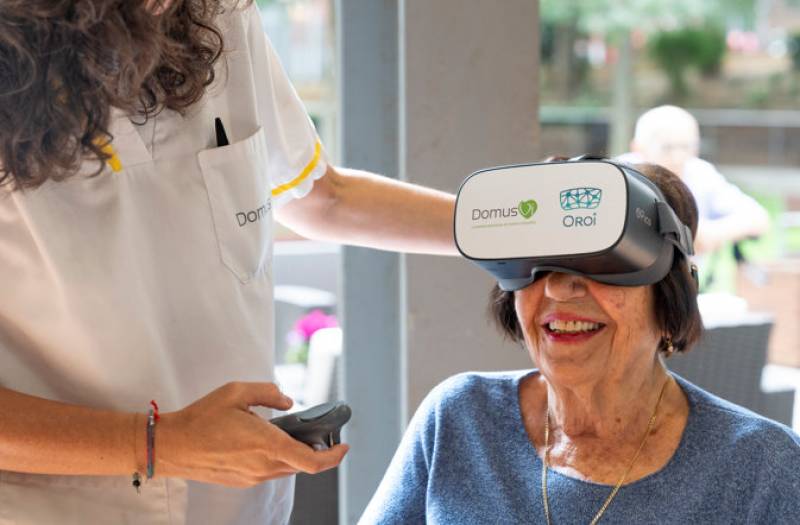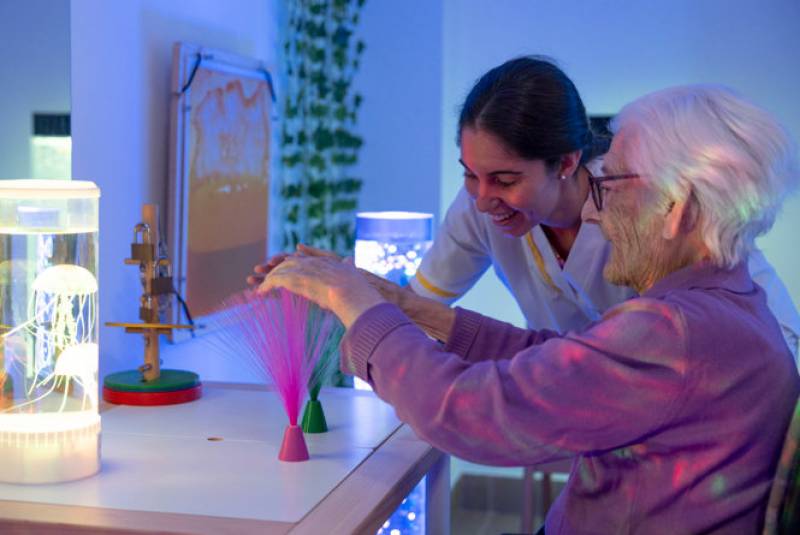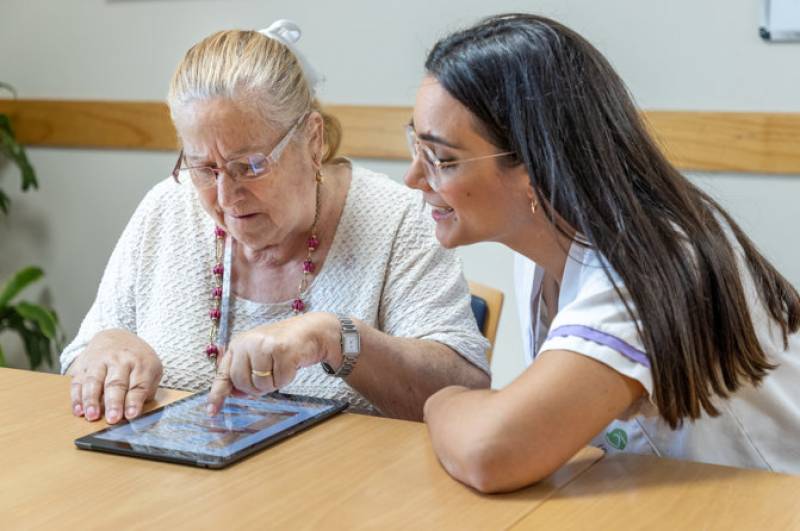

Guidelines for submitting articles to Los Alcazares Today
Hello, and thank you for choosing Los Alcazares.Today to publicise your organisation’s info or event.
Los Alcazares Today is a website set up by Murcia Today specifically for residents of the urbanisation in Southwest Murcia, providing news and information on what’s happening in the local area, which is the largest English-speaking expat area in the Region of Murcia.
When submitting text to be included on Los Alcazares Today, please abide by the following guidelines so we can upload your article as swiftly as possible:
Send an email to editor@spaintodayonline.com or contact@murciatoday.com
Attach the information in a Word Document or Google Doc
Include all relevant points, including:
Who is the organisation running the event?
Where is it happening?
When?
How much does it cost?
Is it necessary to book beforehand, or can people just show up on the day?
…but try not to exceed 300 words
Also attach a photo to illustrate your article, no more than 100kb

Innovation and technological in care for the elderly at DomusVi Ciudad de Murcia residence in Murcia
Virtual reality goggles replace pharmacological therapy in stimulating the minds and emotions of the elderly
 DomusVi is one of the largest care providers for the elderly in Spain, and in all of its hundreds of residences and day care centres, including the DomusVi Ciudad de Murcia establishment in the regional capital, every effort is made to promote resident-focussed attention, enabling those living there either short- or long-term to take decisions regarding almost all aspects of their daily lives.
DomusVi is one of the largest care providers for the elderly in Spain, and in all of its hundreds of residences and day care centres, including the DomusVi Ciudad de Murcia establishment in the regional capital, every effort is made to promote resident-focussed attention, enabling those living there either short- or long-term to take decisions regarding almost all aspects of their daily lives.
This prioritization of individual preferences and wishes, or “Person-Centred Attention” approach, in turn leads to a great deal of innovation and the use of new technologies, helping to prevent or mitigate any gradual loss of cognitive function and stimulating a healthy and active aging process. In fact, it can be said that in many therapeutic occupations and activities innovation and IT have come to play a central part, making life more comfortable and interactive for a wide variety of residents.
For this reason DomusVi has its own in-house Research and Development department, working to improve services and therapies offered by implanting new methods and technologies as they seek to achieve constant improvement in the levels of wellbeing among residents. In many cases this means less reliance on medication as a means of improving quality of life by relying on sessions of reminiscence, therapy, active aging and cultural and social events and activities.
At the DomusVi Ciudad de Murcia residence, director Cristina Pastor comments that “technology can play a relevant part in favouring the individuals’ socialization and promoting active social environments”.
The following are just a few examples of these innovative projects which are in use:
The Multi-Sensory Trolley
This selection of multi-sensorial care items provides a kind of non-pharmacological therapy which complements more traditional aspects of care. It can be used in different locations and offers personalized treatment for psychological and behavioural problems, promoting relaxation and wellbeing as well as pain relief.
The care is based on the use of the five senses, making it a unique cognitive treatment in the sector, and virtual realities can be selected or adapted to each individual user. The immersive experiences provide a workout for the emotions and cognitive functioning of the user, transporting residents to places which awaken forgotten sensations and helping to improve their quality of life and emotional wellbeing.
 VR goggles
VR goggles
The use of virtual reality goggles has been taken from the field of leisure and entertainment into the area of therapy as a means of creating pleasant and beneficial exercises for the elderly. Emotions and cognitive stimuli are exercised in fun experiences, with results including improved memory and concentration.
Robotic pet cat
This “robo-cat” is used particularly in therapeutic treatment programs for those suffering from dementia.
The cat depends on artificial intelligence to modify its behaviour and responses according to its environment, and can also learn, and Cristina Pastor observes that “therapy with robot pets is highly beneficial for people suffering from conditions related to dementia or genitive deterioration”.
INNOVATION: The “LIVES WITH A STORY” methodology
Part of the Person-Centred Attention approach at DomusVi residences is the “Lives With a Story” program, whose aim is to allow carers to learn a resident’s life story as fully as possible – this enables then to tailor their care exactly.
At the same time, though, it involves not only the resident but also family members and other professionals. This “Lives With a Story” program can take months to compile, becoming an ongoing project and going far beyond the medical case history of the resident as it extends to sessions of reminiscence and hopes for the future, placing emphasis on the resident’s own identity and self-esteem. Each person is encouraged to talk about his or her experiences and to structure and order them, putting together a coherent thread of the story of their life and piecing together anecdotes, episodes and even pieces of music or things they have read in order to form a detailed portrait of the individual.
In most cases the story is compiled by the resident with contributions from friends and family members who can fill in forgotten details or episodes.
 As Cristina Pastor says, all of the staff at DomusVi know that their role in caring for residents on a daily basis is “not to exclusively to talk or to listen, but to engage in an active two-way conversation in just the way a friend or family member would do in a home environment” – this is the way to make the person feel valued and independent, and to provide the comfortable atmosphere which they need and deserve.
As Cristina Pastor says, all of the staff at DomusVi know that their role in caring for residents on a daily basis is “not to exclusively to talk or to listen, but to engage in an active two-way conversation in just the way a friend or family member would do in a home environment” – this is the way to make the person feel valued and independent, and to provide the comfortable atmosphere which they need and deserve.
INNOVATION: the “SENIOR UNIVERSITY” initiative
The unique and pioneering Senior University project is led by the Fundación DomusVi and makes it possible for residents and day care users to study a 6-month university course, obtaining a certificate in Humanities, in collaboration with the Instituto de Formación Continua IL3 at the University of Barcelona.
The aim is for residents and users to widen their knowledge while making use of their cognitive faculties, empowering them by assigning to them the role of university students as they study aspects of History, Music, History of Art, Geography and Literature.
A total of 181 elderly people have successfully graduated in the four courses run so far, realizing their dreams of becoming university graduates at ages between 70 and 90.
INNOVATION: Food and nourishment
NUTRI+
DomusVi takes part actively in the Nutri+ project, which aims to make more people aware of the importance of digestive health by generating ingredients, special dishes, balanced diets and adapted textures to help those with problems chewing and swallowing (dysphagia). At the same time, of course, priority is given to providing healthy levels of nutrition even with adapted textures while at the same time making sure that the presentation of food is visually attractive.
Within the Nutri+ program 30 products with adapted textures have been developed for dysphagia sufferers, along with 8 for easy-to-chew diets.
INNOVATION: Care and attention
Modern technology is at the disposal of all staff at DomusVi, encouraging them to adapt to innovations which make their care and services easier to provide and more effective through the commitment to individualized attention plans for all residents.
At the same time, all information systems and registers related to the care of residents is being digitalized in order to reinforce the commitment to Person-Centred Attention.
In short, Cristina Pastor believes that “new technologies offer the elderly an opportunity to learn new skills, keeping them up to date and ensuring that their minds remain active while they enjoy their leisure time”. This, she underlines, applies not only to long-term residents but also to those on short-stay programs, who also benefit from the same approach to prioritize the individual’s tastes and preferences.











